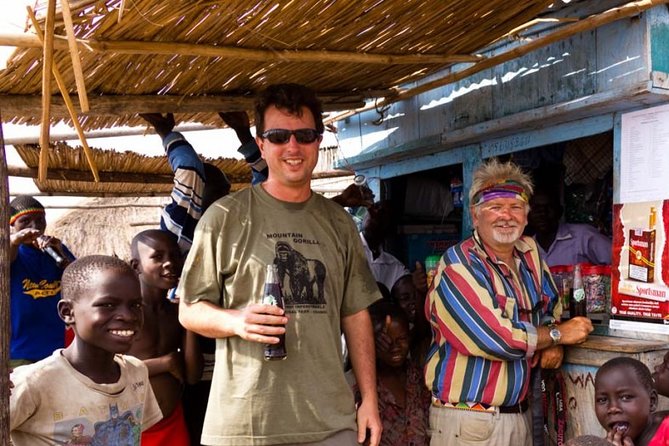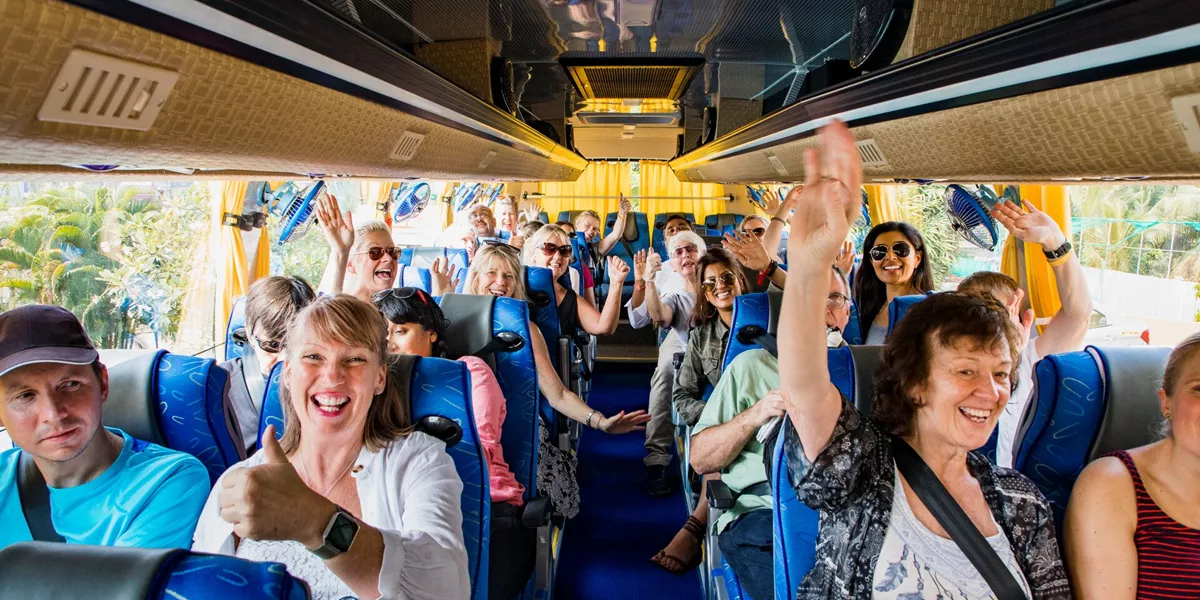Safety Guide: Butiaba Group Tour for Foodies
On the northern shores of Lake Albert, in western Uganda, lies the fishing town of Butiaba. Though small in scale, its reputation stretches far beyond its borders, known for its vibrant fishing culture, its dramatic history tied to explorers and colonial expeditions, and its irresistible culinary identity shaped by fresh fish and local produce. For travelers who are food enthusiasts, Butiaba is more than a stop; it is a sensory destination where every meal tells a story, every bite carries cultural resonance, and every encounter reflects the character of Uganda’s Albertine region.
Yet, traveling as a group requires careful planning. Excitement can easily overshadow logistics, but without consideration for safety, health, and cultural respect, even the most delicious journey may leave unwanted memories. A successful foodie adventure in Butiaba must balance indulgence with precaution, ensuring that every member of the group experiences Uganda’s richness with confidence and peace of mind.
This guide, therefore, unfolds as both a culinary journey and a safety manual, tailored to groups eager to explore Butiaba’s gastronomic offerings without compromising their well-being. It details everything from navigating transport to understanding local customs, from savoring lakeside meals to staying vigilant about health, and from organizing group dynamics to ensuring responsible interaction with the community. In doing so, it creates a blueprint for a safe, memorable, and flavorful tour in Butiaba.
Understanding Butiaba: A Cultural and Culinary Overview
Before diving into the safety essentials, one must appreciate what makes Butiaba distinct. Historically, it was a key entry point during the colonial era, serving as a landing site for boats that carried explorers, missionaries, and traders. Its strategic location on Lake Albert made it a hub of interaction, blending cultures and leaving behind stories that still echo in local memory.
Culinary identity, however, defines Butiaba most vividly today. The Nile perch and tilapia that dominate its waters are transformed daily into dishes that capture both tradition and innovation. Smoked, grilled, stewed, or fried, the fish here is unmatched in freshness. Accompaniments such as matoke, cassava, groundnut sauce, and simsim paste enrich the meals, reflecting Uganda’s agricultural diversity. For a group of foodies, Butiaba is not simply a destination—it is a classroom, a kitchen, and a dining table under the open sky.
Butiaba’s charm lies not only in its meals but in the authenticity of the experience. Dining is often informal, taking place in local markets, roadside stalls, or lakeside huts, where cooks and fishermen work side by side. It is here that safety awareness becomes essential, for while authenticity enriches experience, it also demands attention to hygiene, environment, and respect for local rhythms.
Traveling Safely to Butiaba
Groups often begin their journey to Butiaba from Hoima or Masindi, with routes weaving through scenic countryside and forested areas. The journey itself sets the tone, yet road travel in Uganda requires preparation. Vehicles must be roadworthy, drivers experienced, and schedules flexible enough to accommodate weather changes or unexpected stops.
For groups, safety begins with choosing reliable transport providers. Roads to Butiaba can be uneven, especially during rainy seasons when floods and mudslides occasionally affect the Albertine region. Traveling during daylight hours is strongly advised, allowing drivers to navigate safely while giving travelers a chance to enjoy the unfolding landscapes.
Upon arrival in Butiaba, groups should remain together, particularly in public spaces like busy fish markets. Group cohesion ensures that members are not separated in unfamiliar environments and allows leaders or guides to monitor the safety of all participants. It is in the act of arriving well-prepared that the foundation for a safe foodie tour is laid.
Food Safety: The Core of a Culinary Journey
For foodies, Butiaba’s greatest treasure is its cuisine, yet safety at the table is as important as taste. The freshness of fish is undeniable, often caught only hours before it is served. However, preparation methods, cooking standards, and hygiene practices vary. Groups must therefore navigate with curiosity balanced by caution.
Meals are safest when fish is thoroughly cooked, whether smoked, grilled, or stewed. Undercooked or improperly handled seafood can cause discomfort, especially for travelers unaccustomed to local bacteria. Group leaders should encourage members to eat at reputable restaurants, recommended stalls, or lodges known for cleanliness. This not only supports safe dining but also contributes to the local economy by rewarding establishments that uphold high standards.
Hydration is also central to safety. Bottled water is widely available, but groups should ensure it is sealed before purchase. Drinking directly from the lake or relying on untreated sources should be avoided. Similarly, fruits and vegetables sold in markets should be washed or peeled before consumption. For groups, designating a responsible member to oversee these checks often proves effective.
Street food, such as fried fish snacks or roasted maize, adds vibrancy to Butiaba’s culinary experience. Yet here, moderation and mindfulness matter. Sampling is encouraged, but excessive consumption of unfamiliar foods may overwhelm stomachs unprepared for Uganda’s spice blends or cooking oils. The rule of food safety is simple but vital: indulge, but remain vigilant.
Group Dynamics and Safety in Numbers
Traveling as a group to Butiaba offers both opportunities and challenges. On the one hand, groups benefit from safety in numbers. Moving together deters petty theft, ensures mutual support, and creates a shared experience that heightens enjoyment. On the other hand, larger groups require careful organization to avoid confusion, delays, or overlooked safety practices.
Clear communication is critical. Group leaders should set meeting points in Butiaba, particularly at busy sites like fish markets or docks. Head counts before departure and after meals ensure that no member is unintentionally left behind. Groups that assign roles—such as a health coordinator, a photographer, or a logistics monitor—often manage their tours more smoothly.
For foodies, sharing meals in groups enhances both safety and bonding. Platters of grilled fish, bowls of groundnut sauce, and trays of steamed matoke encourage communal dining, reflecting Uganda’s cultural emphasis on togetherness. Group dining also reduces risk, as reputable establishments are more inclined to prepare meals for larger groups with greater care.
Health and Hygiene Precautions
Beyond food safety, general health precautions shape a safe Butiaba tour. Western Uganda lies in a region where malaria is common; groups should travel prepared with mosquito repellents, long-sleeved clothing for evenings, and, where advised, prophylactic medication. Lodges and guesthouses around Butiaba often provide mosquito nets, but groups should confirm this before booking.
First aid preparation is indispensable. Groups should carry basic medical kits with bandages, antiseptics, pain relievers, and rehydration salts. While Butiaba has health centers, more advanced facilities are located in larger towns like Hoima, making preparedness crucial for quick response.
Sanitation awareness is equally vital. Hand hygiene before meals prevents unnecessary illness. Carrying sanitizers or wipes ensures that groups can enjoy street food and market visits without compromising health. For families traveling with children, extra caution in maintaining hygiene creates peace of mind for parents and caregivers.
Cultural Sensitivity and Safety
Safety is not only about physical well-being but also about cultural awareness. Butiaba is deeply rooted in fishing traditions, and respect for local customs ensures smooth interactions. Groups should approach markets and docks with curiosity but also humility, recognizing that these are not staged attractions but living workplaces for fishermen and vendors.
Photography, while tempting, should be approached with permission. Fishermen pulling in nets or women preparing fish in markets deserve respect for their labor. A smile and polite request before capturing moments often lead not only to consent but to shared conversations that enrich the experience.
Groups should also be mindful of language. While English is widely understood, greetings in the local dialect bring warmth and reduce barriers. Respect in words, gestures, and dress builds trust, ensuring that groups are welcomed rather than resented.
Cultural safety, in this sense, protects the spirit of the journey as much as physical safety protects the body.
Exploring Beyond Food: Balanced Group Adventures
While Butiaba is primarily known for its cuisine, groups often enrich their itineraries with explorations beyond the dining table. Boat rides on Lake Albert provide opportunities to see hippos, birds, and stunning views of the Congo’s distant shores. Community visits allow travelers to understand the lives of fishing families, their challenges, and their resilience.
For foodies, these experiences deepen context. The fish on the plate is no longer just a meal but part of a broader ecological and cultural cycle. Seeing fishermen cast nets at dawn or children helping prepare evening fires creates connections between food and the human hands behind it.
Safety during these explorations requires guides who understand the terrain, boats equipped with life jackets, and group leaders who monitor participation closely. Groups that balance food with gentle exploration often leave Butiaba with a fuller, richer understanding of its essence.
Best Times for a Safe Butiaba Tour
The rhythm of safety in Butiaba is also influenced by seasonality. The dry seasons, from December to February and June to August, provide the most comfortable conditions. Roads remain accessible, markets are lively, and boat rides across Lake Albert unfold smoothly.
During the rainy seasons, however, Butiaba experiences floods that may disrupt travel. Roads become slippery, and the lake’s waters grow unpredictable. While the town remains accessible, groups must prepare for delays, alternate routes, and weather adjustments. Those who plan ahead, scheduling flexible itineraries, continue to enjoy the richness of Butiaba even during wetter months.
Seasonality also shapes the food scene. Dry months often coincide with bustling fishing activity, offering groups abundant fresh catch. Rainy months bring fertile harvests of fruits and vegetables, adding vibrant accompaniments to fish-based meals. Knowing these cycles ensures that groups not only travel safely but also dine in harmony with nature’s rhythm.
Responsible Travel and Sustainability
A safe group foodie tour in Butiaba must also consider the sustainability of resources. Lake Albert, like many African lakes, faces challenges of overfishing and environmental strain. Groups are encouraged to dine responsibly, supporting establishments that source fish sustainably and respect community welfare.
Avoiding food waste is equally critical. Group dining can easily lead to excess, but planning portions and sharing meals ensures respect for both food and community. Groups can also contribute to sustainability by purchasing locally made crafts, supporting community initiatives, and engaging with fishermen in ways that honor rather than exploit their traditions.
Responsible travel, in this sense, enhances safety by ensuring harmony with both people and environment. It ensures that future generations of foodies will continue to find Butiaba as authentic and abundant as it is today.
Safety as the Flavor Enhancer
A group tour to Butiaba for foodies is more than a culinary indulgence; it is a journey into Uganda’s cultural heart, where every meal reflects the rhythms of lake, land, and life. Yet safety remains the silent ingredient that enhances every flavor. Without attention to food hygiene, health precautions, cultural sensitivity, and group organization, the experience risks being diminished. With safety woven into every step, however, the journey becomes a symphony of taste, laughter, and shared memory.
The checklist for groups is clear: travel with reliable transport, dine with awareness, maintain health vigilance, respect cultural rhythms, and embrace sustainability. In doing so, groups discover not only the flavors of Nile perch or groundnut sauce but also the deeper satisfaction of traveling responsibly and securely.
For travelers who dream of such seamless journeys—where safety, cuisine, and discovery converge—it is wise to trust partners who know the land, the people, and the details of group travel. That is why it is recommended to book your African tours and safaris through WildHorn Africa, ensuring that every Butiaba group foodie tour is designed with expertise, care, and a passion for creating unforgettable and secure adventures.






